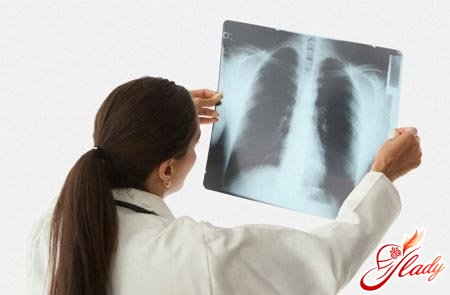 Treatment of the pancreas is one of the mosttopical issues. And it is no coincidence, because quite a large number of people face this problem. But before we start talking about treatment, let's remember the school anatomy course to eliminate unnecessary questions. What is the pancreas? This is one of the most important organs in the human body, located behind the stomach and closely adjacent to the duodenum. The function of the pancreas is to produce special enzymes that, entering the duodenum, take direct part in the digestion of food. And most importantly, it is the pancreas that produces the very hormones that are responsible for the absorption of sugar. Therefore, chronic pancreatitis is also dangerous because it increases the risk of developing diabetes.
Treatment of the pancreas is one of the mosttopical issues. And it is no coincidence, because quite a large number of people face this problem. But before we start talking about treatment, let's remember the school anatomy course to eliminate unnecessary questions. What is the pancreas? This is one of the most important organs in the human body, located behind the stomach and closely adjacent to the duodenum. The function of the pancreas is to produce special enzymes that, entering the duodenum, take direct part in the digestion of food. And most importantly, it is the pancreas that produces the very hormones that are responsible for the absorption of sugar. Therefore, chronic pancreatitis is also dangerous because it increases the risk of developing diabetes.
Pancreatitis
Одной из самых часто встречающихся патологий pancreas is its inflammation. In this case, the functioning of the gland is disrupted - the enzymes produced, instead of getting into the duodenum, remain inside. The process of self-destruction of the pancreas begins. And this is only half the trouble - both toxins and pancreatic enzymes can get into the bloodstream. And because of this, other vital organs - the liver, kidneys, heart, nervous system - can be seriously damaged. That is why acute pancreatitis is an extremely serious disease that must be treated as soon as possible. And in the case of the chronic form of this disease, you should not hesitate either. Inflammation of the pancreas usually begins abruptly and unexpectedly. Most often, the inflammatory process develops as a result of blockage of the bile ducts by gallstones. In cases of particularly severe inflammation, the pancreas can swell significantly. The sick person experiences quite severe pain in the right hypochondrium, which is of a girdle nature. In addition to blockage of the bile ducts, there are a number of reasons that can lead to the development of acute pancreatitis:
- Long-term abuse of alcoholic beverages.
- A large number of different drugs.
- Improper diet is too much spicy and fatty food.
Chronic form of pancreatitis is also foundmuch more often. The reasons that can lead to the development of chronic inflammation of the pancreas are the same as in acute pancreatitis. In addition, such diseases as atherosclerosis, liver disease, gastritis and chronic colitis can have an effect. And, it goes without saying that untreated acute pancreatitis can also develop into a chronic form of the disease.
Treatment of acute pancreatitis
As is already clear from all of the above,pancreatitis is a very dangerous disease. Therefore, leaving it untreated is simply unacceptable, otherwise the life of the sick person will be at risk. Within the framework of this article, you will get only a general idea about the treatment of the pancreas with drugs. But this information should not become a guide to action. The course of treatment should be selected only by a doctor, and in the case of acute pancreatitis only in a hospital setting. The first thing that drug treatment will be aimed at is supporting all vital organs and systems of the body, especially the liver and kidneys. In this way, doctors insure the sick person against the development of possible complications. As a rule, all pharmacological drugs are infused intravenously. As, by the way, are nutrient solutions. Intravenous infusion of nutrient solutions is very important in especially severe cases of acute inflammation of the pancreas, and can last from 3 to 5 weeks. This measure is necessary in order to completely relieve the load from the pancreas. Such complex treatment, as a rule, brings very good results. But, unfortunately, not always - sometimes doctors are forced to resort to surgical intervention. After the symptoms of acute pancreatitis pass, it is very important to understand what exactly led to the development of the disease. If the "culprit" is identified, this will help to minimize the possible risk of relapse of pancreatitis.
Treatment of chronic pancreatitis
Treatment of chronic pancreatitis - the processis quite labor-intensive and very long. And it consists of three things - taking medications, a healthy lifestyle and constant adherence to a strict diet. The entire course of treatment should also be prescribed by the attending physician, taking into account individual health characteristics and the nature of the disease. For the treatment of chronic pancreatitis, the following drugs are used:
- Digestive enzymes
As a rule, in most cases chronicpancreatitis leads to the development of exocrine pancreatic insufficiency. Because of this, the body has a very low content of its own digestive enzymes. And therefore the body needs help - this is why the doctor prescribes medicinal enzymes to the patient. There are quite a lot of different types of these drugs - both microgranules and capsules, and classic tablets. The doctor will select exactly those drugs that are needed in each specific case. After all, in different situations, different enzymes are needed in different quantities. A single course of enzyme intake will not be enough - they must be taken three to four times a year.
- Spasmolytic drugs
In both acute and chronic formspancreatitis, the patient experiences quite severe pain. Therefore, pain relief is also included in the complex treatment of pancreatitis. To eliminate pain, doctors prescribe various antispasmodic drugs.
Therapeutic diet
During an exacerbation of chronic pancreatitis, it is necessary to observe complete fasting until the pain disappears. The following day, it is necessary to begin eating according to the therapeutic menu:
During the second week of the sick person's menucan be diversified with fruits, vegetables, jelly and juices. However, both juices and fruits should not be overly sweet, as this will create an unnecessary burden on the pancreas. And after the attack of pancreatitis has passed, dietary restrictions should not be forgotten under any circumstances. Strictly prohibited products:
- Meat and mushroom broth.
- Any animals and cooking fats, margarine.
- Onion, garlic, cabbage, sorrel and radish.
- All kinds of legumes.
- Coffee, cocoa, chocolate, carbonated drinks.
Recommended products:
- Rye bread of yesterday's baking.
- Vegetable and cereal soups with the addition of butter or sour cream.
- Steam cutlets, soufflé and little bits of low-fat meat.
- Low-fat steamed fish.
- Low-fat cheese, cottage cheese, milk, sour-milk products.
- Vegetable puddings.
- Apples are both raw and baked.
- Kissels and fruit compotes from fruit, broth of wild rose.
Afterword
As you could see, if you havea person has inflammation of the pancreas, treatment must be started as soon as possible. And it must be carried out under strict medical supervision. Only in this case the person's health will not be at risk. Therefore, at the first signs of illness, it is necessary to seek medical help as soon as possible. We recommend reading:









